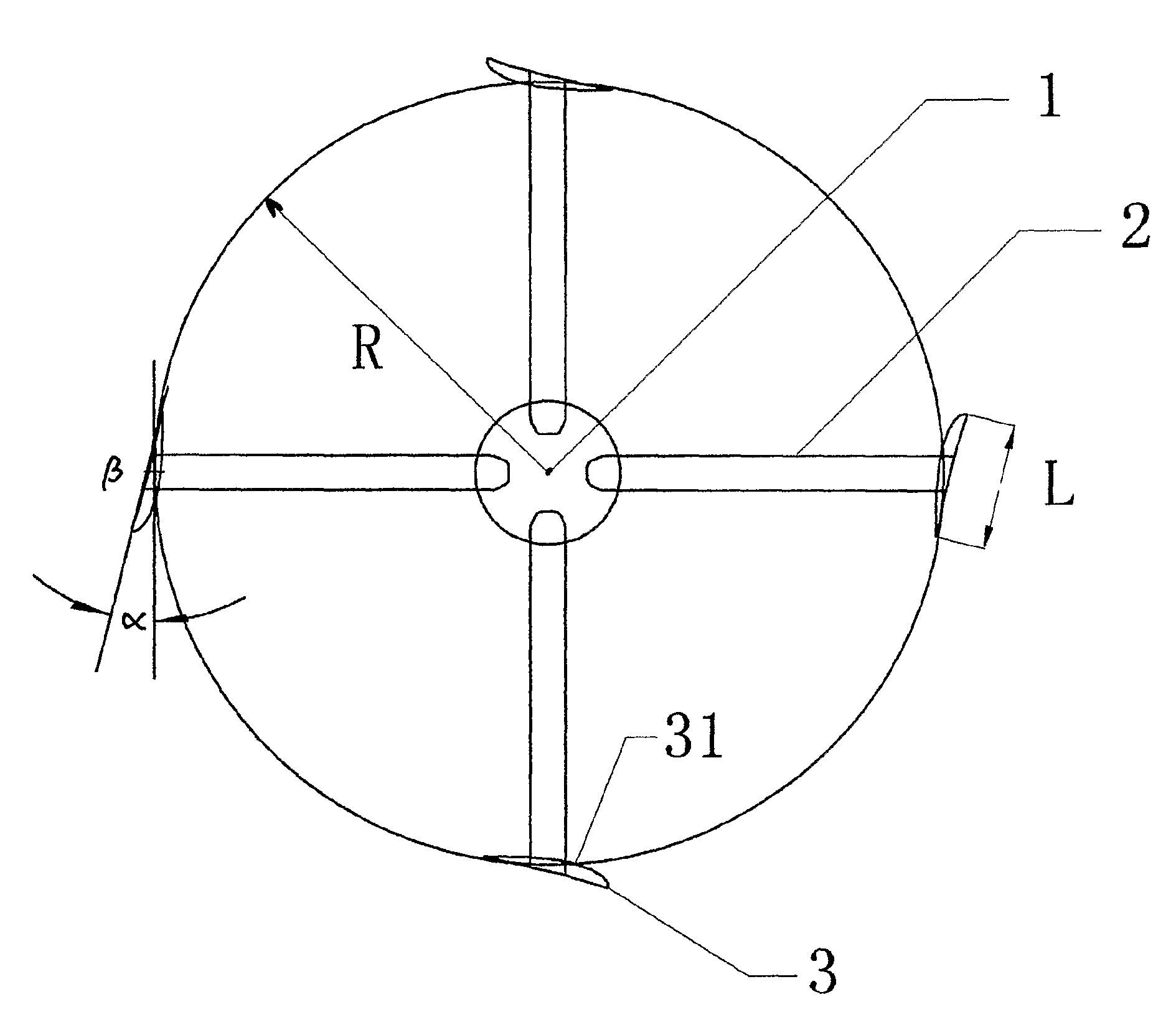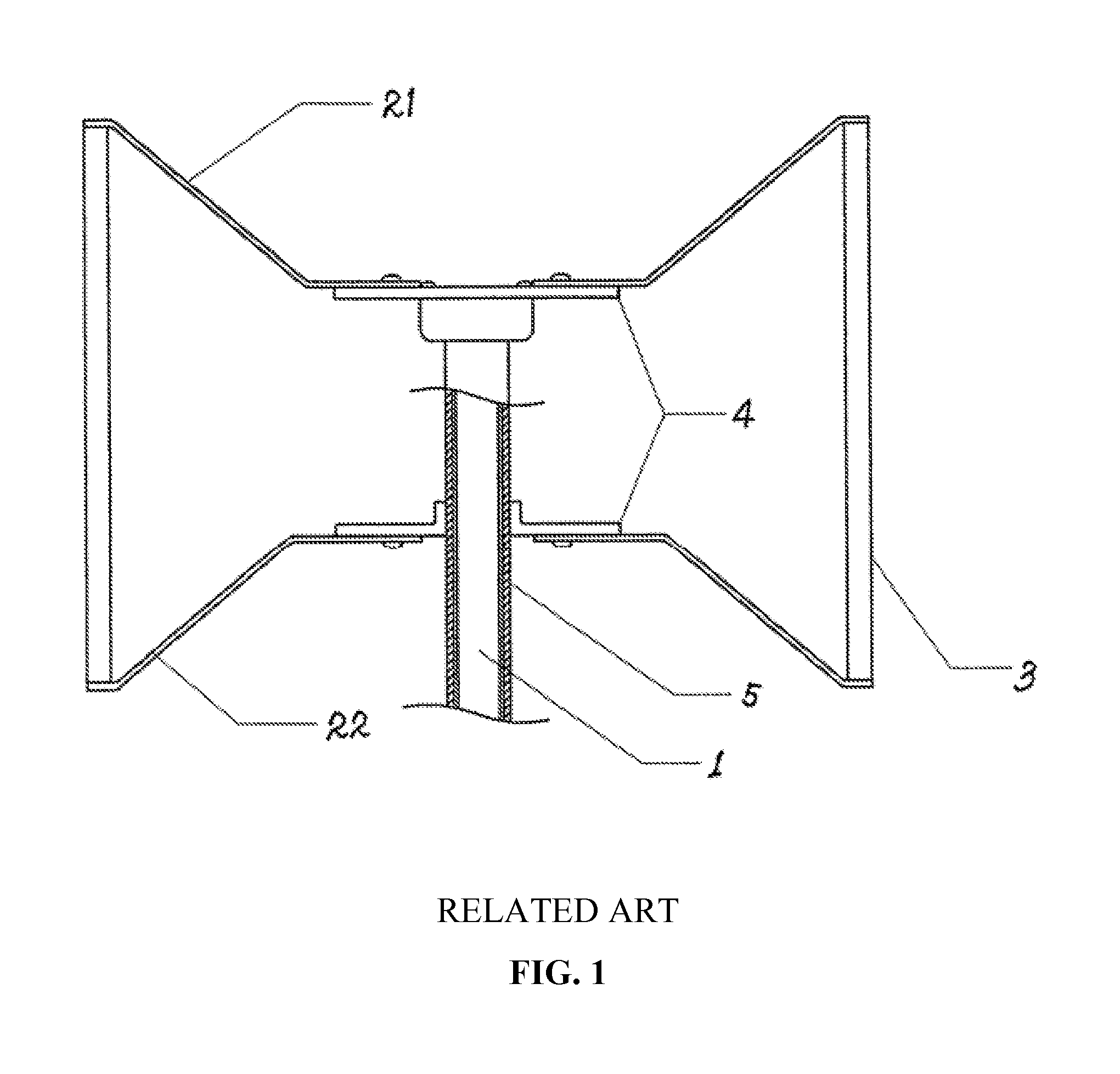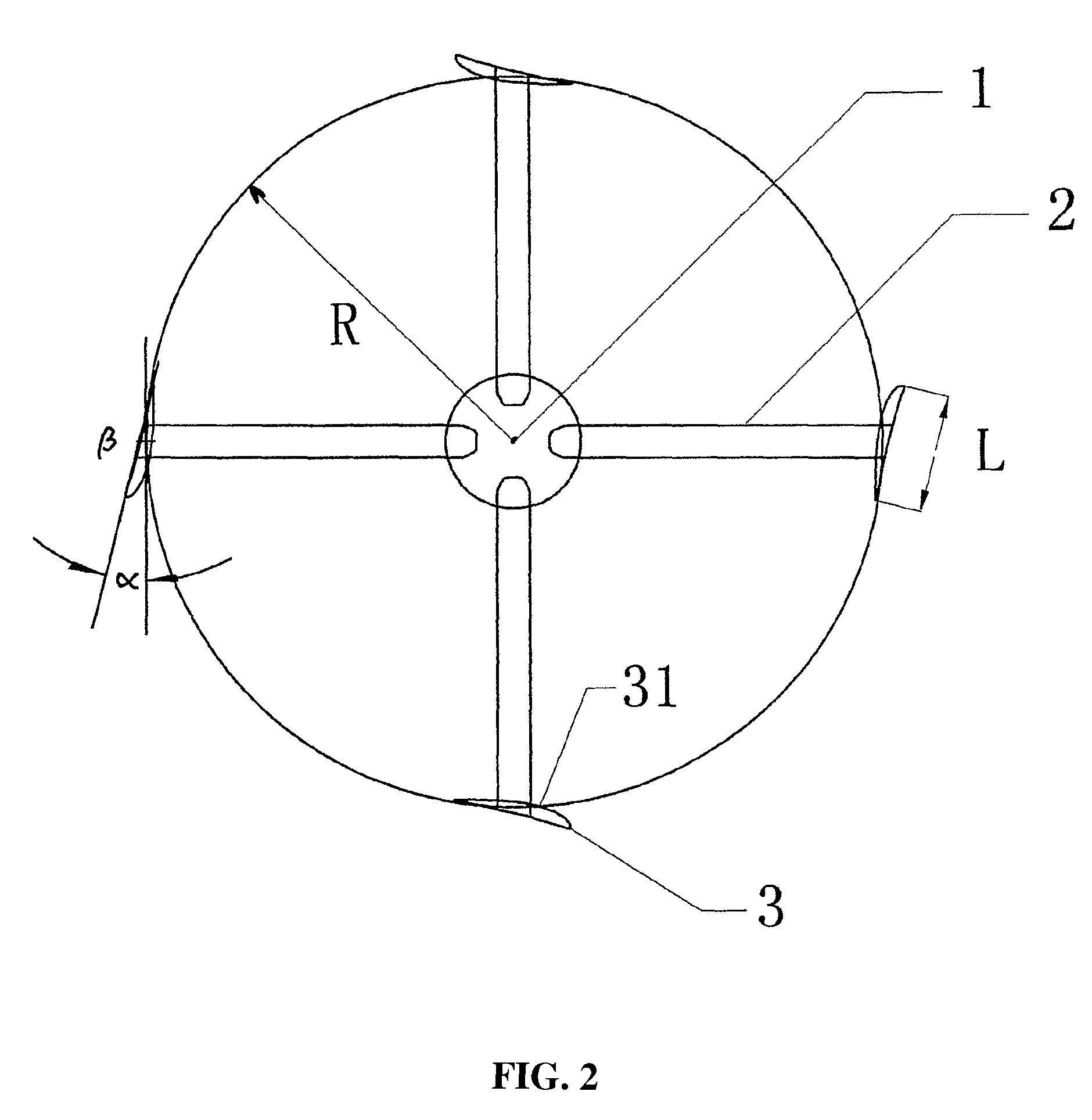Vertical axis wind turbine and method of installing blades therein
a vertical axis, wind turbine technology, applied in vessel construction, renewable energy generation, greenhouse gas reduction, etc., can solve the problems of large resistance produced on the blade, inability of the wind rotor to reach higher rotating speeds, and difficulty in starting, so as to avoid the vibration of the motor and avoid the load of the wind rotor
- Summary
- Abstract
- Description
- Claims
- Application Information
AI Technical Summary
Benefits of technology
Problems solved by technology
Method used
Image
Examples
example 1
Determination of Rotating Speed and Power by CFW under Different Radius / Chord Ratios
[0034]With reference to FIGS. 1 and 2, the vertical axis wind turbine of this invention comprises vertical axis 1, support arms 21 and 22 connected to the vertical axis 1, a wind rotor consisting of a plurality of blades mounted to support arm 2, blades 3 connected to axis sleeve 5 through support arms 21 and 22, and a flange 4. An aerofoil of the blade 3 is a dissymmetrical aerofoil with camber. The blade is mounted such that its convex surface 31 faces vertical axis 1.
[0035]The radius of the wind rotor was 0.68 m. The cumber-airfoil blade Goe63 was mounted in such a way that its convex surface faces vertical axis. The blade rotating angle was between 0 and 10 degrees. The number of blades was 5. The wind speed was 10 m / s. The rotating speeds and output power of the wind rotor was by CFW under different radius / chord ratios.
[0036]With reference to FIG. 3, when the radius / chord ratio of a wind rotor a...
example 2
Rotating Speed and Power by Computer Simulative Calculation under Different Blade Rotating Angles.
[0041]The radius of the wind rotor was 0.68 m. The cumber-airfoil blade Goe63 was mounted such that its convex surface faced the vertical axis. The number of blades was 5. The wind speed was 10 m / s. Then the rotating speeds and output power of the wind rotor were calculated by CFW under different blade rotating angles.
[0042]With reference to FIG. 4, when the blade rotating angle is between 0 and 10 degrees, the wind rotor can obtain a relatively large power. A better power is obtained when the blade rotating angle is between 2 and 8 degrees. However, a progressively smaller blade rotating angle will affect the start-up of the rotor.
[0043]When the wind rotor is static, the blade is resistance-free. A blade can get a large moment of torque to easily start the wind rotor with a large blade rotating angle; while a blade can get a small moment of torque and have difficulty in starting the wi...
example 3
Output Power of the Wind Rotor by Computer Simulative Calculation with Different Number of Blades
[0045]The radius of the wind rotor was 0.68 m. The cumber-airfoil blade Goe63 was mounted such that its convex surface faces vertical axis. The wind speed was 10 m / s. Then, a curve for the rotating speeds and output power of the wind rotor under different blade rotating angles was calculated.
[0046]As shown in FIG. 5, by comparing the wind rotor respectively consisting of 3, 5, 6 blades, when the chord length of the blade is constant, as the number of blades increases, the distance between adjacent blades is shortened, then the vortex produced at the rear edge of the previous blade increases the aerodynamic resistance on the next blade, thus the moment of the wind rotor decreases. However, if the number of blades is too small, the moment acting on the wind rotor will decrease accordingly. It was determined experimentally that a wind rotor consisting of 5 blades would produce a maximum out...
PUM
| Property | Measurement | Unit |
|---|---|---|
| angle | aaaaa | aaaaa |
| angle | aaaaa | aaaaa |
| blade rotating angle | aaaaa | aaaaa |
Abstract
Description
Claims
Application Information
 Login to View More
Login to View More - R&D
- Intellectual Property
- Life Sciences
- Materials
- Tech Scout
- Unparalleled Data Quality
- Higher Quality Content
- 60% Fewer Hallucinations
Browse by: Latest US Patents, China's latest patents, Technical Efficacy Thesaurus, Application Domain, Technology Topic, Popular Technical Reports.
© 2025 PatSnap. All rights reserved.Legal|Privacy policy|Modern Slavery Act Transparency Statement|Sitemap|About US| Contact US: help@patsnap.com



